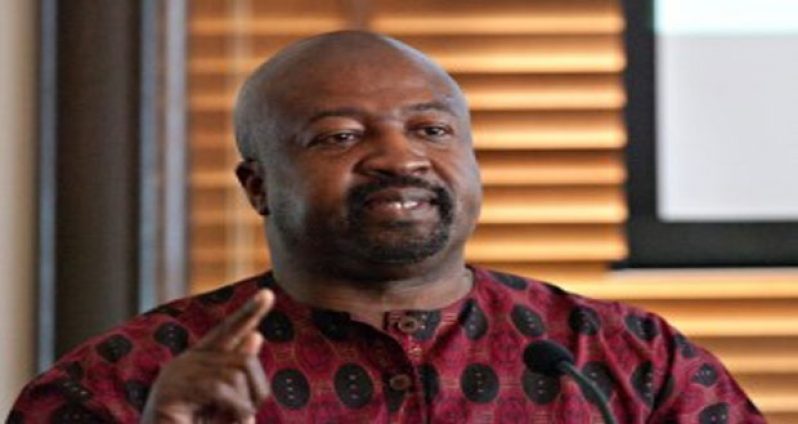— Let us say thanks to Dr. Walter Rodney
I AM writing this column on my way from Haiti, where I attended the 41st Annual Caribbean Studies Association Conference. For six days, more than a thousand scholars of different generations, who study and teach about the Caribbean from all parts of the world, engaged in scholarly exchanges about our region. It is always uplifting to be part of any meeting of our Caribbean family, but it was especially uplifting this year, because we were meeting in Haiti.
Despite its persistent tribulations, there is something special and magical about that country: its people, its landscape and its rhythms. The very fact that it was the vanguard of Black and Caribbean freedom puts Haiti at the centre of our survivalist and freedom trajectory. As Angela Davis, whose rich and insightful address to the conference, asserted: “Whatever little freedom we enjoy today we owe it to the Haitian people.”
This was my second visit to Haiti. The first time I landed on Haitian soil, five years ago, I cried tears of thanks because I knew that my Buxtonion, Guyanese, Caribbean and Black identities, individually and together, owe a great debt to Haiti. Haiti is our living link to Mother Africa, and is the Mother of our Caribbean.
There were no tears on this visit, but I wrapped my mind around Haiti and tried to imagine what our Caribbean could be if only we could begin as a people, together and in our separate island-states, to reach for our glory and love ourselves again. As I watched the Haitian people go about their daily business of surviving the harshness of persistent neo-colonialism, I saw and felt hope for our Caribbean. I have never seen a nation of people bear their burdens, our Caribbean burdens, with such resilience. I never doubt the beauty and dignity of Black people and Caribbean peoples, but Haiti affirms this feeling.
Angela Davis gave a memorable address to the conference, linking race, class, nation, history, oppression, survival and freedom pioneers. When she got to the point of her address — which discussed underdevelopment — she asked the audience whom she was thinking about, and hundreds of voices responded in unison: “Walter Rodney!” followed by a generous round of applause.
It is commonplace to hear Rodney’s work being quoted by scholars, who speak about him in elevated ways; after all, he belonged to the world as one of Guyana’s most precious gifts to world civilization. But when I heard that audience speak his name that evening, I felt a rush of pride as a Guyanese; as a comrade; and a descendant of Rodney and the Caribbean, Black, African and Guyanese radical tradition to which he contributed immensely.
But I also felt a gush of pain, largely because Guyanese of the post-1980 generation do not get to experience moments like these, when their country is lifted to the mountaintop by the mere mention of his name. Several Guyanese scholars were there at the conference to witness that moment, but shamefully, there was only one scholar from the University of Guyana -— lecturer and historian Estherene Adams —- who presented a well-received paper on another outstanding Guyanese, Eusi Kwayana.
There is something wrong — very wrong — when a country which has produced intellectual titans such as Eusi Kwayana, Walter Rodney, Clem Seecharan, Alissa Trotz, Ivan Van Sertima, Rupert Roopnaraine, Elsa Gouveia and Clive Thomas could send only one scholar from its university to the major academic conference in and about our Caribbean. How can scholars at UG effectively teach our students when they are cut off from communion with their colleagues in the rest of the region and the world? We get so carried away and wrapped up in our political mess that we often do not realize how disconnected we are from the rest of the Caribbean and the world. In the process, we have become a little, isolated and dangerous country that wallows in its disconnectedness.
As I think about Walter Rodney, whom we assassinated 36 years ago on a Friday night, I think about Guyana and its slow but steady march towards the edge. I think about some of the backwardness I read on Facebook and the newspaper blogs, and I wonder if we can pull ourselves back from the edge. The brutal murders and our seeming numbness to them; the national hypocrisy when it comes to our ethno-racial condition; the persistent betrayal by our political leaders, replete with economic and psychological brutalization of poor people —- the doom varies, but it never goes away.
But, in the end, we bust press on. Rodney had asked that, should he be cut down, his body must be used as a barricade for the revolution. The revolution which he started, and for which he was murdered by the hand of the State, is still incomplete. Walter Rodney must live again in Guyana as he lives in the global space. As CLR James, another Caribbean intellectual giant, would say: There is always work to be done. Let us, on this June 13, whatever our politics, say thanks to Walter Rodney for making us whole while he walked our streets, and for the legacy of hope he has left us.


.jpg)











